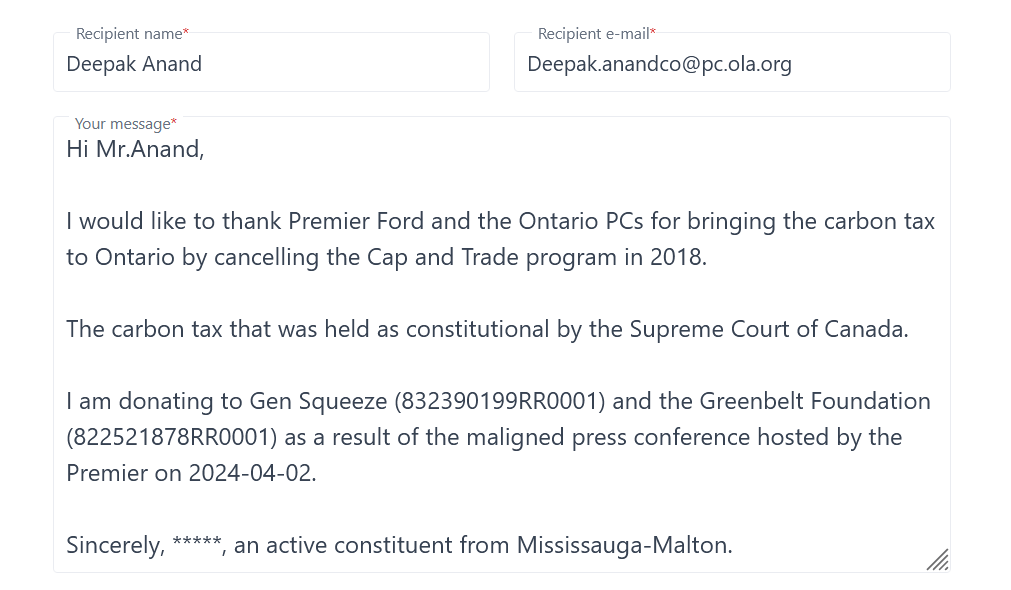cross-posted from: https://lemmy.ca/post/31487544
Only 48.2% of New Brunswick voters supported the New Brunswick Liberals, yet the voting system has handed Susan Holt’s Liberals 63.3% of the seats and 100% of the power.
The election results were a misrepresentation of what voters said with their ballots:
- The Liberals got 63.3% of the seats with 48.2% of the vote.
- The Progressive Conservatives got 32.7% of the seats with 35.0% of the vote.
- The Greens got only 4.1% of the seats with 13.8% of the votes, electing only 2 MLAs to represent their 51,523 voters.
- About 44.9% of voters – 168,429 – cast wasted votes that elected no-one.
With proportional representation, where the seats in the New Brunswick legislature matched the popular vote, no single party would have had all the power and parties would have had to work together in the legislature.
First-past-the-post makes New Brunswick appear more divided along linguistic lines than it actually is. The 16 PC seats are all in the English-speaking ridings, so the Liberal victory is in the francophone ridings plus six in Saint John and three in Fredericton. With proportional representation, all three parties will have elected MLAs in all areas of the province.
“Once again, our voting system has distorted the will of the people,” said Vivian Unger, from Fair Vote New Brunswick. This time, it gave the Liberals a majority with 48.2% of the vote. I congratulate the Liberals on their win, but I’d also like to remind them of that time in 2018 that they got the most votes but lost the election. This time, they were running against a very unpopular Premier, and that helped them out. That’s not something they can count on in the future. I hope this win will not prevent them from holding that citizens’ assembly on electoral reform, ASAP. Their members voted for it.”
The New Brunswick Greens put proportional representation in their election platform. For the sake of all New Brunswick voters, it’s time for the New Brunswick Liberals to put proportional representation on their agenda.

So what's your point? That apathy means that we should not improve our democracy?